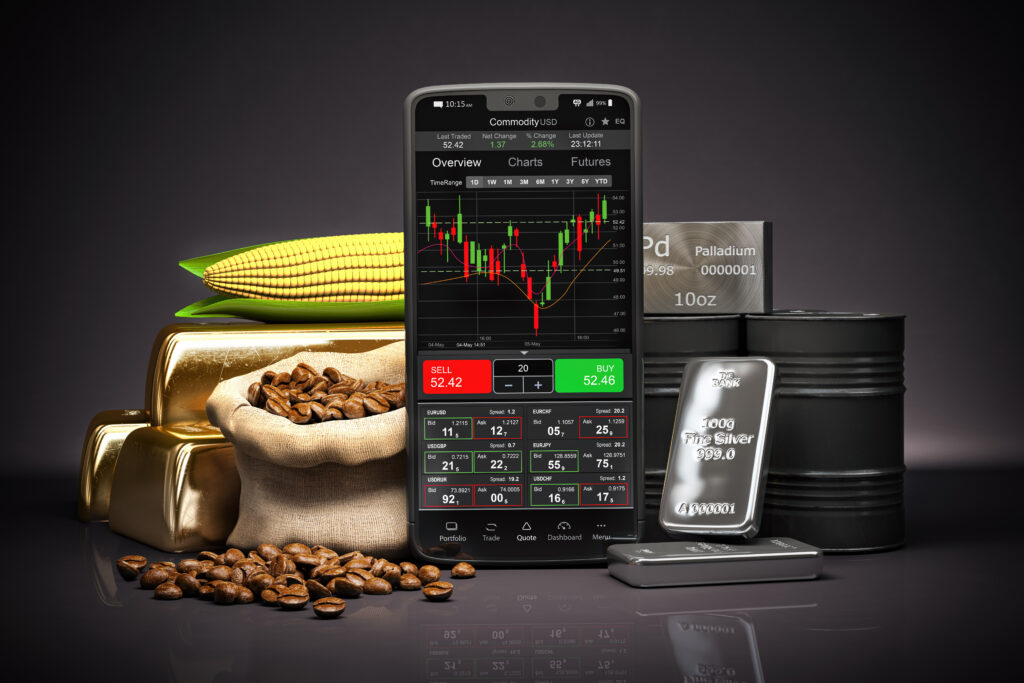Introduction
In an era marked by relentless scientific progress, the world of finance stands witness to a unique phenomenon – the interplay between global genomic research advancements and forex markets. As nations invest heavily in healthcare and biotechnology, a ripple effect is felt in the world of currency trading. This article embarks on a comprehensive investigation into how breakthroughs in genomic research and biotechnology, particularly in leading countries, influence forex markets, with a focus on healthcare investment and biotech trade.
Understanding Forex Markets
Forex markets, often abbreviated as FX or foreign exchange markets, are the lifeblood of global currency trading. These markets serve as a dynamic platform for the exchange of one currency for another, with currencies typically traded in pairs. Understanding the intricacies and significance of forex markets is essential, as they play a pivotal role in the global economy, functioning as a barometer for international trade, investment, and overall economic health.
- The Basics of Forex Trading:At its core, forex trading is the simultaneous buying of one currency and selling of another. Currencies are quoted in pairs, with the first currency in the pair referred to as the base currency, and the second as the quote currency. The exchange rate indicates how much of the quote currency is needed to purchase one unit of the base currency.
For example, in the EUR/USD pair, the euro (EUR) is the base currency, and the US dollar (USD) is the quote currency. If the EUR/USD exchange rate is 1.20, it means that one euro is equivalent to 1.20 US dollars.
- Market Participants:Forex markets are not limited to a specific location or exchange. Instead, they operate electronically, allowing for 24-hour trading, five days a week. Key participants in these markets include:
- Banks and Financial Institutions: Large banks and financial institutions engage in forex trading to facilitate international transactions and manage currency risks.
- Corporations: Multinational corporations participate in forex markets to hedge against currency fluctuations that could impact their global operations.
- Retail Traders: Individuals can access forex markets through online brokers, making it accessible to retail traders looking to speculate on currency price movements.
- Central Banks: Central banks intervene in forex markets to stabilize their national currencies or achieve specific monetary policy objectives.
- Hedge Funds and Speculators: These entities engage in forex trading for profit, often employing various strategies to capitalize on currency movements.

- Role in the Global Economy:Forex markets are a vital component of the global financial system, performing several critical functions:
- Facilitating International Trade: Forex markets enable countries to engage in international trade by providing a mechanism for converting one currency into another. Exporters and importers rely on these markets to settle transactions.
- Investment and Speculation: Forex trading offers opportunities for investment and speculation. Investors can diversify their portfolios by holding foreign currencies, and speculators aim to profit from currency price fluctuations.
- Economic Health Indicator: Exchange rates are a reflection of a country’s economic health. A strong currency may signify economic stability and confidence, while a weak currency can indicate economic challenges.
- Monetary Policy Influence: Central banks use forex markets to implement monetary policy. They can intervene by buying or selling their own currency to influence its value or stabilize exchange rates.
- Market Size and Liquidity:Forex markets are renowned for their immense size and liquidity. Trillions of dollars are traded daily, dwarfing other financial markets such as stocks and bonds. This high liquidity ensures that traders can enter and exit positions with ease, even in large quantities, without significantly impacting exchange rates.
The major currency pairs, including EUR/USD, USD/JPY, and GBP/USD, are the most heavily traded, offering robust liquidity and narrow spreads. However, forex traders have access to a wide range of currency pairs, including exotic and minor pairs, catering to various trading strategies and preferences.
In summary, forex markets are the cornerstone of global currency trading, offering a diverse range of opportunities for participants. Their role extends beyond mere exchange, as they serve as a barometer for the global economy, reflecting international trade, investment sentiments, and economic health. With their unparalleled liquidity and accessibility, forex markets continue to be a focal point for investors, institutions, and traders seeking to navigate the complexities of the modern financial landscape.
The Genomic Revolution
1. Genomics Defined:
- Genomics is the branch of molecular biology that focuses on the study of an organism’s entire set of genes, known as its genome. This field aims to unravel the genetic code of living organisms, including humans, plants, animals, and microorganisms. Genomic research involves decoding the DNA (deoxyribonucleic acid) sequences that make up an individual’s genetic blueprint.
2. The Human Genome Project:
- One of the pivotal milestones in genomics was the Human Genome Project, a collaborative international effort launched in 1990 with the goal of mapping and sequencing the entire human genome. This ambitious project was completed in 2003, marking a historic moment in science and medicine. It provided a comprehensive map of the human genetic code, comprising approximately 20,000-25,000 protein-coding genes. This breakthrough paved the way for numerous applications in healthcare and biotechnology.
3. Personalized Medicine:
- Genomic research has revolutionized healthcare by enabling personalized medicine. Understanding an individual’s unique genetic makeup allows for tailored medical treatments and therapies. For example, genetic testing can identify specific genetic mutations that increase the risk of certain diseases, enabling early intervention and preventive measures. Moreover, personalized medicine has transformed cancer treatment, where genetic profiling helps select the most effective therapies with minimal side effects for individual patients.
4. Disease Understanding and Prevention:
- Genomic research has deepened our understanding of the genetic basis of various diseases, including cancer, cardiovascular diseases, and genetic disorders. By identifying the genetic factors contributing to these conditions, researchers can develop targeted therapies and preventive strategies. This knowledge has the potential to reduce the global burden of disease and improve overall public health.
5. Innovative Biotechnological Applications:
- Beyond healthcare, genomics has spurred innovation across various industries. Biotechnology companies leverage genomic data to develop advanced products and services. Agricultural genomics, for instance, helps breed crops with desirable traits, enhancing food production and sustainability. Environmental genomics aids in monitoring and preserving ecosystems by studying the genetic diversity of species. Genomic data is also crucial in forensic science for DNA profiling and identification.
6. Ethical and Privacy Considerations:
- The Genomic Revolution has raised ethical and privacy concerns. As genetic data becomes more accessible, questions about data security, informed consent, and genetic discrimination have emerged. Safeguarding individuals’ genetic information and ensuring ethical practices in genomic research are ongoing challenges that require careful regulation and oversight.
7. International Collaboration:
- Genomic research is a global endeavor, with countries around the world investing heavily in infrastructure, technology, and collaborative initiatives. International cooperation in genomics has accelerated progress and enabled the sharing of valuable genetic data for research and clinical purposes.
8. Future Prospects:
- The Genomic Revolution is far from over. Advancements in gene editing technologies like CRISPR-Cas9 offer the potential to precisely modify genetic material, opening doors to treatments for previously incurable genetic diseases. Moreover, ongoing research into the human microbiome, which consists of trillions of microorganisms living in and on our bodies, holds promise for understanding its influence on health and disease.
In conclusion, the Genomic Revolution represents a seismic shift in the scientific and medical landscape, offering unprecedented opportunities to improve human health, agriculture, and the environment. As countries worldwide invest in genomics and biotechnology, we can anticipate further breakthroughs and innovations that will continue to reshape our world in remarkable ways. However, it is crucial to navigate the ethical and privacy challenges associated with the vast amount of genetic data being generated, ensuring that the benefits of genomics are equitably distributed and responsibly managed for the betterment of society as a whole.

Impact on Healthcare Investment
1. Healthcare Investment as a Forex Catalyst:
Healthcare investment plays a pivotal role in shaping the behavior of the forex market in response to genomic advancements. Here’s a closer look at how this investment factor influences currency values:
2. Resource Allocation to Genomics:
Nations that allocate substantial financial resources to genomics and biotechnology are essentially making a long-term commitment to scientific progress and innovation. These investments support research, infrastructure, and the development of cutting-edge technologies in genomics.
3. Attracting Investor Attention:
When a country announces a significant breakthrough in genomics, it captures the attention of not only the scientific community but also investors worldwide. The groundbreaking nature of such advancements often sparks enthusiasm among investors who recognize the potential for substantial returns.
4. Confidence and Currency Strength:
The announcement of a major genomics breakthrough can instill confidence in a country’s economy and its healthcare and biotechnology sectors. This newfound confidence can lead to an influx of foreign investment, as investors seek to capitalize on the country’s scientific achievements.
5. Increased Demand for the National Currency:
Foreign investors looking to invest in a country’s biotech companies or healthcare sector will require the nation’s currency to do so. As the demand for the national currency surges, its value appreciates in the forex market.
6. Impact on Exchange Rates:
The increased demand for the national currency due to investment interest can result in a higher exchange rate against other currencies in the forex market. This means that the country’s currency becomes stronger relative to other currencies.
7. Fluctuations Due to Setbacks and Regulation:
On the flip side, setbacks or regulatory issues in the genomics and biotechnology sector can trigger fluctuations in currency values. Negative news or unexpected challenges can erode investor confidence, leading to a decrease in demand for the national currency.
8. Long-Term Implications:
It’s important to note that the effects of healthcare investment on currency values may have long-term implications. Countries with sustained commitment to genomics and biotechnology can establish themselves as leaders in these fields, attracting ongoing foreign investment and fostering economic stability.
9. Global Impact:
The influence of healthcare investment on forex markets is not limited to individual countries. It extends to the global stage, as investors diversify their portfolios by considering currencies of countries making significant strides in genomics and biotechnology.
10. Balanced Investment Strategies:
For investors, staying informed about advancements in genomics and biotechnology is essential. Balancing investment strategies by incorporating currencies from countries at the forefront of these sectors can help mitigate risks and capitalize on opportunities.
In conclusion, healthcare investment is a fundamental driver in the forex market’s response to genomic advancements. The allocation of substantial resources to genomics and biotechnology can lead to increased investor confidence, driving up demand for the national currency and ultimately affecting exchange rates. However, it’s crucial to recognize that the relationship between healthcare investment and forex markets is multifaceted and influenced by various factors, including the sustainability of genomics initiatives and global economic conditions. Investors and traders must carefully analyze these dynamics to make informed decisions in the ever-evolving landscape of international currency trading.
Biotech Trade and Currency Fluctuations

1. Biotech Trade in Forex Markets:
Biotech trade is a significant driver of currency fluctuations in the forex market, particularly in nations known for their contributions to genomic research and biotechnology. Here’s how this relationship unfolds:
2. Impact of Biotech Stock Prices:
Biotech companies engaged in groundbreaking research and development typically trade on global stock exchanges. The value of these biotech companies’ stocks is closely tied to their achievements and potential breakthroughs in genomics and biotechnology.
3. Positive Breakthroughs:
When a biotech firm, especially one headquartered in a leading genomics research nation, achieves a major breakthrough, it often leads to a surge in its stock prices. This positive news attracts both domestic and foreign investors, who see the company as a promising investment opportunity. Foreign investors, in particular, may rush to purchase shares of this company, requiring the nation’s currency to do so.
4. Increased Demand for Currency:
The influx of foreign investors seeking to invest in the biotech firm drives up demand for the national currency. As these investors convert their own currencies into the local currency to buy shares, the exchange rate of the nation’s currency strengthens against other currencies in the forex market.
5. Currency Appreciation:
The appreciation of the nation’s currency is a direct result of this increased demand. A stronger currency can have several consequences, including making imports cheaper and exports more expensive, which can impact a country’s trade balance.
6. Setbacks and Negative News:
Conversely, setbacks or negative news in the biotech sector can have adverse effects on biotech stock prices. This can occur if a promising drug candidate fails in clinical trials, a regulatory hurdle is not cleared, or if there are safety concerns regarding a biotech product.
7. Investor Confidence:
Such negative developments can erode investor confidence, leading to a sharp decline in the stock prices of biotech companies. In response, investors may seek alternative investment opportunities, both within and outside the healthcare sector.
8. Currency Depreciation:
The loss of investor confidence and the outflow of funds from biotech stocks can result in currency depreciation. As investors sell off the nation’s currency, its exchange rate weakens relative to other currencies.
9. Forex Market Volatility:
The forex market is highly sensitive to these fluctuations. Traders closely watch the performance of biotech stocks, as they serve as indicators of investor sentiment and broader economic health.
In conclusion, biotech trade plays a pivotal role in shaping currency fluctuations in the forex market, especially in nations with a strong presence in genomics research and biotechnology. Positive breakthroughs in the biotech sector can lead to increased demand for the national currency and currency appreciation. Conversely, setbacks or negative news can result in currency depreciation as investor confidence wanes. This interplay highlights the dynamic nature of forex markets and the intricate relationship between scientific advancements, financial markets, and currency values.
Case Studies
1. The United States:
- Robust Genomics and Biotechnology Sector: The United States is a global leader in genomics and biotechnology, with a thriving ecosystem of major companies, research institutions, and innovative startups. Companies like Illumina, Thermo Fisher Scientific, and Moderna have played pivotal roles in driving innovation in genomics and healthcare.
- Positive Developments and the US Dollar: Positive advancements in genomics and biotechnology in the United States often trigger a surge in investor confidence. As breakthroughs occur, investors may flock to U.S. biotech companies and the healthcare sector, leading to increased demand for the U.S. dollar. This heightened demand can contribute to a stronger exchange rate for the U.S. dollar against other currencies in the forex market.
- Global Reserve Currency: The U.S. dollar’s status as a global reserve currency further enhances its response to genomics-related developments. When positive news emerges from the U.S. genomics sector, it can have ripple effects across the global financial landscape, reinforcing the U.S. dollar’s position as a preferred currency for international transactions.
2. China:
- Substantial Genomics Investments: China has made substantial investments in genomics research and biotechnology, with a focus on becoming a global leader in these fields. Initiatives like the “China Precision Medicine Initiative” and the development of genomics-focused biotech companies have propelled the country’s genomics capabilities.
- Impact on the Chinese Yuan: As Chinese biotech companies achieve breakthroughs and expand their presence on the global stage, their success can influence the value of the Chinese yuan in forex markets. Positive developments can result in increased demand for the Chinese yuan as investors seek to invest in Chinese biotech companies or expand their holdings in the country.
- Global Economic Implications: China’s growing influence in genomics and biotechnology not only impacts its currency but also has broader economic implications. It enhances China’s position as a hub for innovation and technology, attracting foreign investments and collaborations.
3. Switzerland:
- Prominent Pharmaceutical and Biotech Companies: Switzerland is home to several world-renowned pharmaceutical and biotech companies, including Roche, Novartis, and Lonza. These companies are actively engaged in genomics research and biotechnological advancements.
- Direct Impact on the Swiss Franc: Advances in genomics can have a direct impact on the Swiss franc’s exchange rate. Positive developments in the Swiss genomics sector can lead to increased demand for the Swiss franc, as investors and international companies engage with Swiss biotech firms.
- Switzerland’s Reputation: Switzerland’s reputation for precision, innovation, and quality extends to its biotech sector. This reputation can attract investors and lead to currency fluctuations based on the success and advancements in the Swiss genomics industry.
In summary, these case studies highlight how countries with significant genomics investments can experience currency fluctuations in response to developments in the field. Positive advancements can lead to stronger currencies, while setbacks can have adverse effects. The forex market’s sensitivity to genomics-related news underscores the importance of monitoring these developments for traders and investors seeking opportunities in currency trading.
Conclusion
In conclusion, the impact of global genomic research advancements on forex markets is a complex interplay of factors. Healthcare investment, biotech trade, and stock market fluctuations all contribute to the relationship between genomics and currency values. Investors and traders closely monitor these developments, making forex markets highly responsive to breakthroughs in genomic research. As nations continue to invest in this transformative field, the connection between genomics and forex markets will remain an intriguing area of study for economists, analysts, and investors alike.




